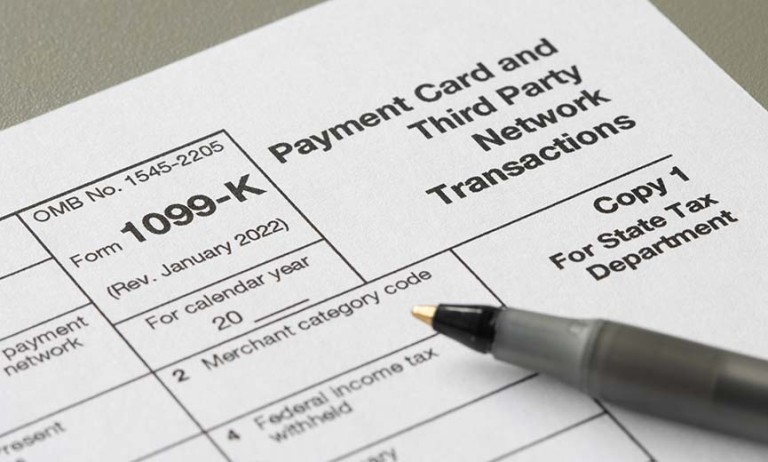- Tax Reform
- Article
- 6 min. Read
- Last Updated: 08/25/2025
Form 1099-K: What Businesses Should Know About Tax Law Impact on the Thresholds

Table of Contents
The tax and spending bill signed into law July 4, 2025, changes the thresholds required for 1099-K reporting. This impacts businesses that utilize PayPal, Venmo, Cash App, and other platforms to receive payments for goods and services.
What Is Form 1099-K?
Form 1099-K is used to report the yearly gross amount of transactions (e.g., digital payments, credit card/debit cards, store value of gift cards, payment apps, and online marketplaces) that go through third-party settlement organizations (TPSO). The form is used to report taxable income.
TPSOs are required to send a copy of a 1099-K to a business or employer by Jan. 31 each year after filing the form with the Internal Revenue Service.
Note: The 1099-K should not include reimbursement of personal expenses, such as a friend or family member paying back money for dinner. These types of reimbursements or even monetary gifts sent via a TPSO should be marked personal to avoid confusion and ultimately inclusion in the reporting.
What Are the New Thresholds for Form 1099-K?
The law reinstates the original thresholds of $20,000 plus more than 200 transactions before a 1099-K must be issued. This is a significant change from the $600 in gross amount of dollars that had been in place since 2023 under the American Rescue Plan Act.
Businesses or employers should receive a 1099-K from every third-party settlement organization they used when these thresholds are exceeded.
Looking Forward
A significant decrease in the number of Forms 1099-K that need to be issued and reported to the IRS is expected based on threshold changes under the new law. The provision of the law on no taxes on tips and overtime might also have an impact.
Tags







